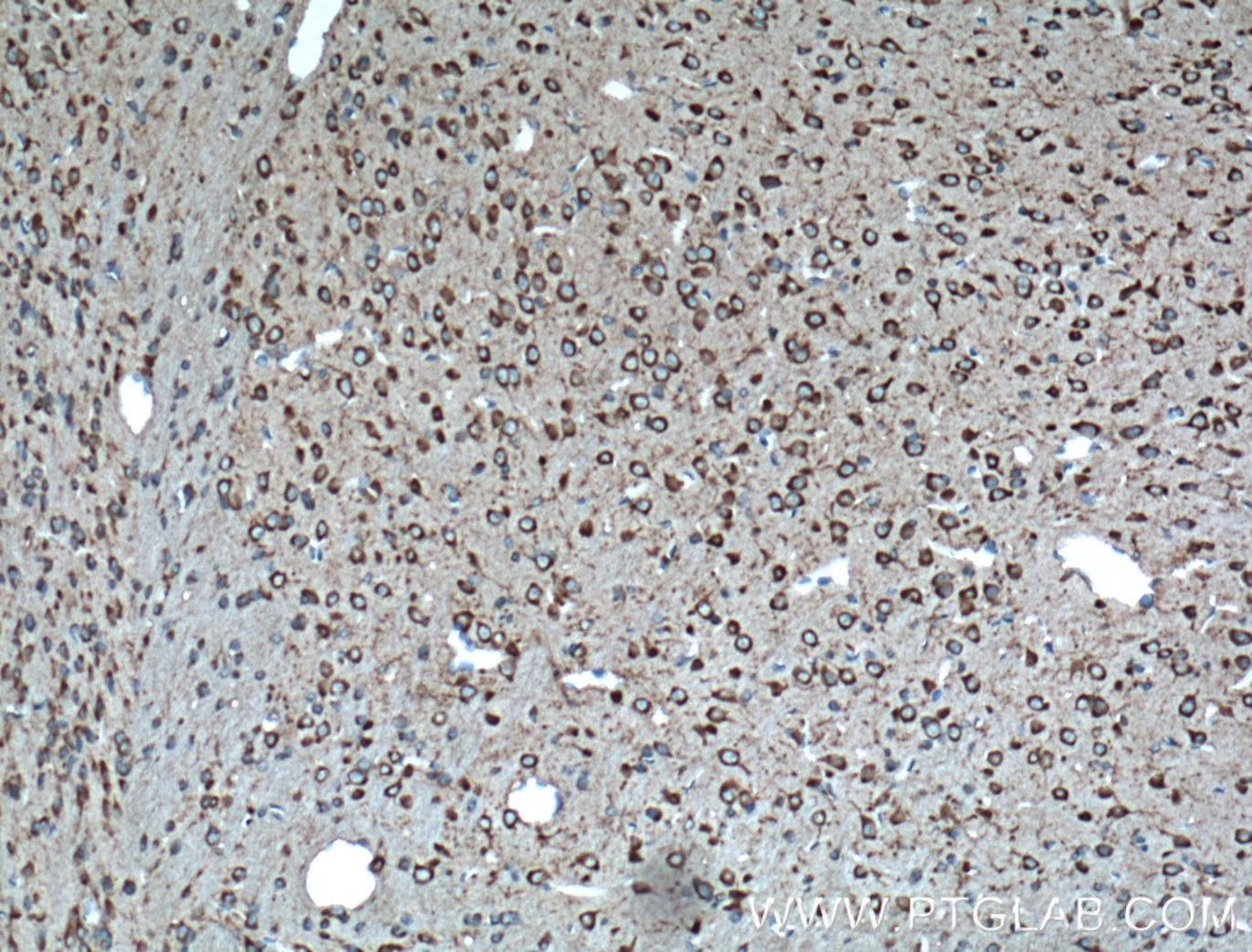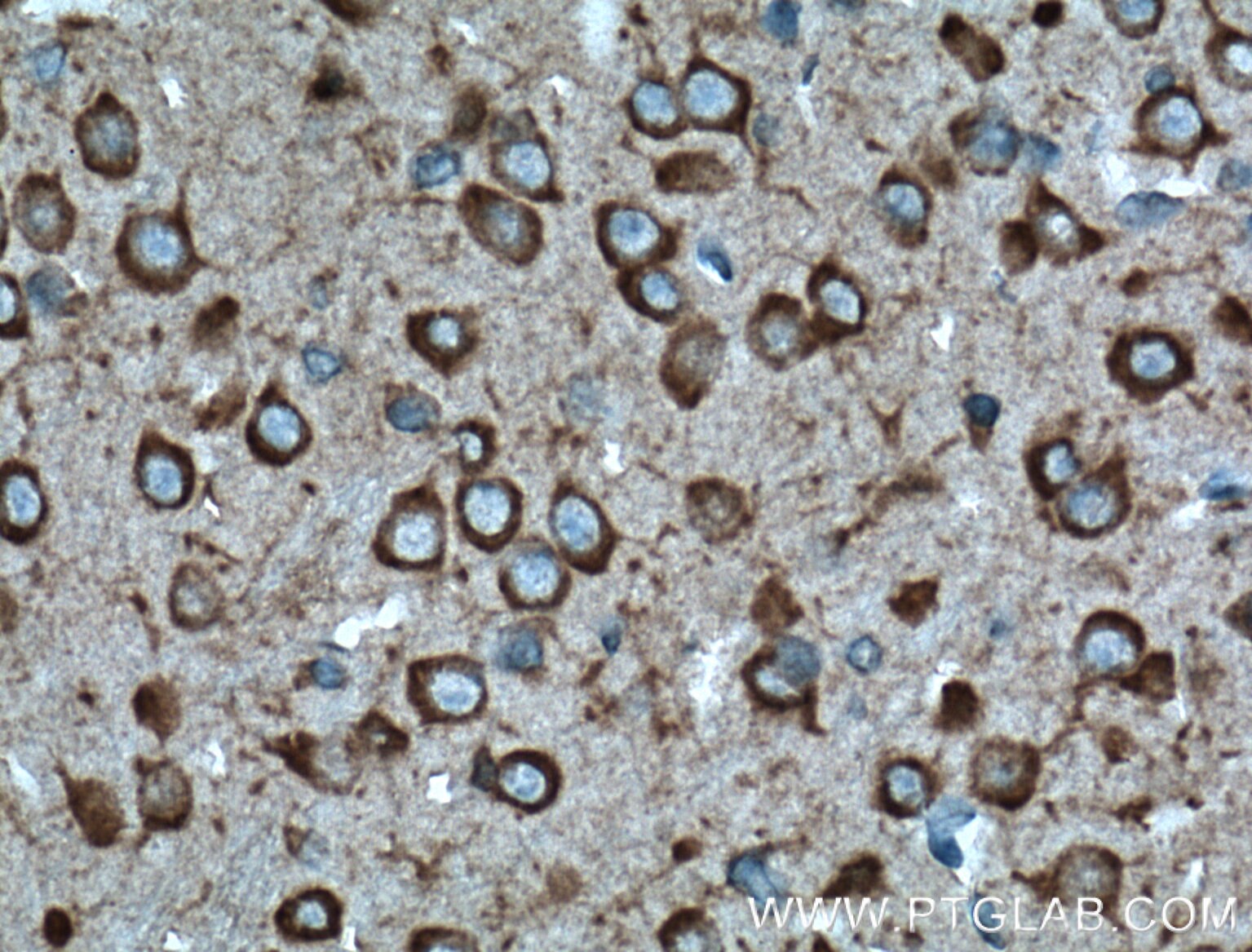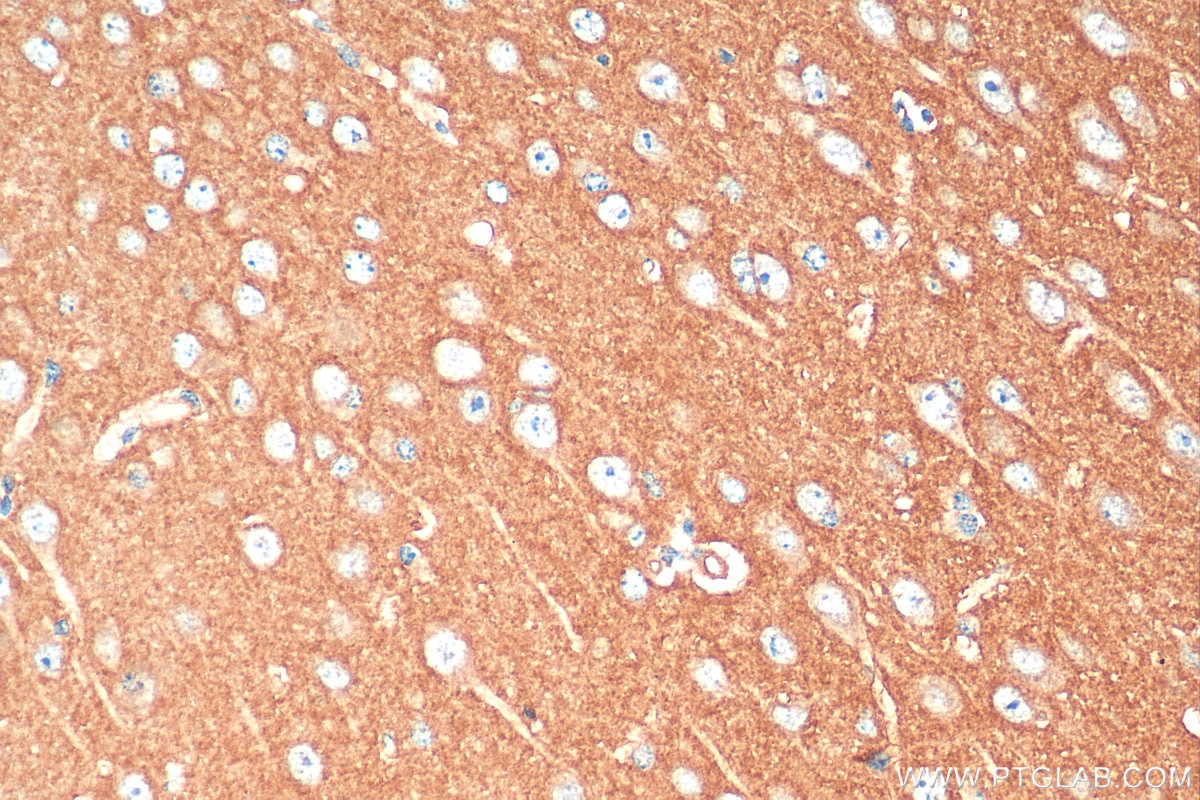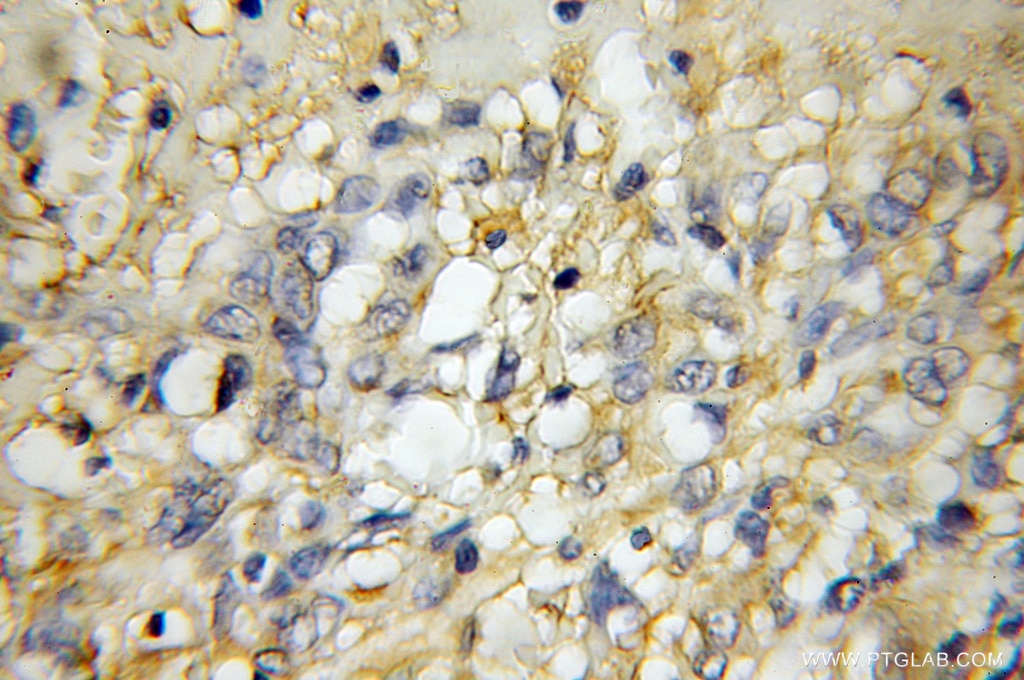- Featured Product
- KD/KO Validated
GPR137 Polyklonaler Antikörper
GPR137 Polyklonal Antikörper für IHC, ELISA
Wirt / Isotyp
Kaninchen / IgG
Getestete Reaktivität
human, Maus, Ratte
Anwendung
WB, IF, IHC, ELISA
Konjugation
Unkonjugiert
Kat-Nr. : 11929-1-AP
Synonyme
Galerie der Validierungsdaten
Geprüfte Anwendungen
| Erfolgreiche Detektion in IHC | Maushirngewebe, humanes Gliomgewebe Hinweis: Antigendemaskierung mit TE-Puffer pH 9,0 empfohlen. (*) Wahlweise kann die Antigendemaskierung auch mit Citratpuffer pH 6,0 erfolgen. |
Empfohlene Verdünnung
| Anwendung | Verdünnung |
|---|---|
| Immunhistochemie (IHC) | IHC : 1:50-1:500 |
| It is recommended that this reagent should be titrated in each testing system to obtain optimal results. | |
| Sample-dependent, check data in validation data gallery | |
Veröffentlichte Anwendungen
| KD/KO | See 3 publications below |
| WB | See 6 publications below |
| IHC | See 1 publications below |
| IF | See 1 publications below |
Produktinformation
11929-1-AP bindet in WB, IF, IHC, ELISA GPR137 und zeigt Reaktivität mit human, Maus, Ratten
| Getestete Reaktivität | human, Maus, Ratte |
| In Publikationen genannte Reaktivität | human, Maus |
| Wirt / Isotyp | Kaninchen / IgG |
| Klonalität | Polyklonal |
| Typ | Antikörper |
| Immunogen | GPR137 fusion protein Ag2611 |
| Vollständiger Name | G protein-coupled receptor 137 |
| Berechnetes Molekulargewicht | 396 aa, 44 kDa |
| GenBank-Zugangsnummer | BC033920 |
| Gene symbol | GPR137 |
| Gene ID (NCBI) | 56834 |
| Konjugation | Unkonjugiert |
| Form | Liquid |
| Reinigungsmethode | Antigen-Affinitätsreinigung |
| Lagerungspuffer | PBS mit 0.02% Natriumazid und 50% Glycerin pH 7.3. |
| Lagerungsbedingungen | Bei -20°C lagern. Nach dem Versand ein Jahr lang stabil Aliquotieren ist bei -20oC Lagerung nicht notwendig. 20ul Größen enthalten 0,1% BSA. |
Hintergrundinformationen
G protein-coupled receptors (GPRs) are highly related to oncogenesis and cancer metastasis. G protein-coupled receptor 137 (GPR137) was initially reported as a novel orphan GPR about 10 years ago. GPR137 is ubiquitously expressed in the central nervous system (CNS), mainly in the hippocampus (PMID: 22025619). GPR137 is involved in the progression of human glioma, suggesting GPR137 as a potential oncogene of glioma cells (PMID: 24870220). Recent study shows that GPR137 plays an important role in colon cancer cell proliferation (PMID: 25301753).
Protokolle
| Produktspezifische Protokolle | |
|---|---|
| IHC protocol for GPR137 antibody 11929-1-AP | Protokoll herunterladen |
| Standard-Protokolle | |
|---|---|
| Klicken Sie hier, um unsere Standardprotokolle anzuzeigen |
Publikationen
| Species | Application | Title |
|---|---|---|
Biotechnol Appl Biochem Knockdown of GPR137 by RNAi inhibits pancreatic cancer cell growth and induces apoptosis. | ||
Biotechnol Appl Biochem G-protein-coupled receptor 137 accelerates proliferation of urinary bladder cancer cells in vitro.
| ||
Cell Biol Int Down-Regulation of G Protein-Coupled Receptor 137 by RNA Interference Inhibits Cell Growth of Two Hepatoma Cell Lines. | ||
Neurol Sci Inhibition of GPR137 expression reduces the proliferation and colony formation of malignant glioma cells. | ||
J Bone Oncol Small interfering RNA-mediated silencing of G-protein-coupled receptor 137 inhibits growth of osteosarcoma cells. | ||
Mol Med Rep RNA interference-mediated silencing of G protein-coupled receptor 137 inhibits human gastric cancer cell growth.
|





